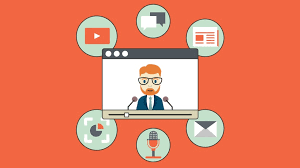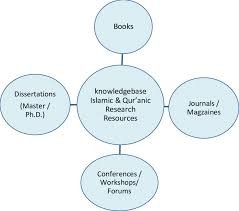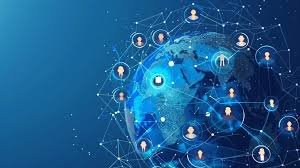,,”Empowering Learners: Expert Resources and Guidance”
Updated: 20 Apr 2025
Empowering Learners: Expert Resources and Guidance
In today’s fast and everchanging world, education is more than just gaining knowledge. It is preparing learners to adapt, think and thrive in different aspects of life. While the global landscape was developing, the importance of learners reinforced their learning trips to control. This requires access to professional resources, effective instruction, and a personalized approach to address individual learning needs and interests. In this article, we will examine the most important factors that will strengthen learners through expert resources and guidance.

The Importance of Empowering Learners
Educational approval is to provide students with the tools, knowledge and support they need to leverage their potential. Instead of memorizing only the facts and performing tasks, it is recommended that effective learners take over the path of education. If learners feel confident in their skills, they are more likely to be involved in their research, pursue their passions, and face challenges with resilience. This includes critical thinking, problem solving, creativity and cooperation. This is important for both personal and professional fields. By promoting an environment of approval, educators can ensure that learners are adaptable not only to knowledge but also to future opportunities and challenges.

Expert Resources: A Vital Component of Empowerment
Access to professional resources is the cornerstone that strengthens learners. Books, articles, videos, online courses or tools, high quality resources, learners allow learners to address topics more deeply, gain different perspectives, and understand complex concepts. There are several options as expert resources contribute to strengthening learners.

1:Diverse Learning Materials:
Resources from a wide range of disciplines, including science, history, arts and technology, allow learners to study topics beyond traditional curricula. This will help you expand your horizon, promote curiosity and discover interests you may not be seeing.

2.Interactive Platforms:
The digital age has sparked an interactive learning platform that provides engaging content such as simulations, quizzes, discussion forums and more. These platforms allow learners to actively participate in the learning process, instead of obtaining information about passive information. Some platforms offer adaptive learning technology that personalizes learning experiences based on individual strengths and weaknesses.

3.Expert Advice
Access to experts in a variety of fields through online forums, webinars and mentoring programs. This type of expert advice provides learners with valuable guidance for career decisions, academic challenges and personal growth.

4.Research Based Resources
Educators and learners benefit equally from research-based resources that present the latest knowledge and best practices in education. These resources often provide evidence-based strategies for effective learning and ensure that the information consumed is based on proven methods.

5.Global Connectivity
The Internet connects learners with a global community and provides access to experts and resources from around the world. This creates opportunities to communicate with pioneers from different backgrounds, global learning experiences.refgf

The Role of Guidance in the Learning Journey
Although resources are critical, instructions are equally important to help learners understand the material they encounter and navigate their educational trips. Instructions are available in a variety of ways, from teachers and mentors to peer support and online forums. Here, the instructions support learners’ approval.

1.Personalized Support:
Every learner has a variety of strengths, weaknesses, interests, and learning styles. Professional management helps adapt learning strategies to meet each individual’s specific needs. Personalized coaching and feedback provide learners with the tools they need to overcome obstacles, improve performance and stay motivated.

2.Goal Setting and Motivation:
An important aspect to strengthening learners is setting clear and accessible goals. This instruction allows learners to recognize their learning goals, pursue progress and focus on their ultimate goals. Mentors or consultants who support this process are encouraged and validated, thus increasing the motivation of the learners.
3.Encouraging Critical Thinking:
Effective instructions are not just answering questions. It encourages learners to ask the right questions. Mentors and educators can encourage critical thinking by challenging students, analyzing information, studying several perspectives, and guiding thoughtful discussions. This approach helps learners build the skills they need to think independently and creatively.
4.Building Confidence:
As learners receive instructions and see their growth over time, self-confidence increases. By promoting positive reinforcement and celebrating small successes, students can continue to strive for top performance. With appropriate guidance in mind, learners are less likely to be overwhelmed by the task and are more likely to take risks and implement new opportunities.
5.Emotional and Social Support:
Learning is not only an intellectual persecution, but also an emotional and social experience. The instructions provide learners with the emotional support they need to maintain resistance considering the set fold. Promoting positive reinforcement, constructive feedback and a sense of community helps students feel supported during their study trips.
How Technology Is Transforming the Way We Empower Learners:
In recent years, this technology has become a player in education and offers new ways to enhance learners. From online courses and digital classrooms to artificial intelligence control platforms, the technology has made it easier for learners to access high-quality resources and receive personalized instructions. Examples of technology change learning:
1.Online Learning Platforms:
Platforms such as Coursera, Edx and Khan Academy have revolutionized how learners access knowledge. These platforms offer courses from universities and institutions, providing convenient access to first class content and professional procedures.
2.AI and Adaptive Learning:
Artificial intelligence is used to create adaptive learning systems that adapt the difficulty and pace of lessons based on individual performance. These systems provide a personalized learning experience that meets each student’s needs, improves commitment and improves outcomes.
3.Virtual Reality (VR) and Augmented Reality (AR):
VR and AR change education by providing an immersive learning experience. These technologies allow learners to explore complex concepts in interactive environments, making abstract ideas more concrete and engaging.


